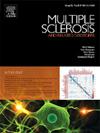Curriculum innovation: Interactive educational workshop improves neurology resident knowledge of multiple sclerosis
IF 2.9
3区 医学
Q2 CLINICAL NEUROLOGY
引用次数: 0
Abstract
Introduction
Establishing a solid resident knowledge of multiple sclerosis (MS) during neurology residency is crucial for independent clinical practice. We created a case-based and interactive educational workshop on MS with the aim of improving neurology resident clinical and theoretical knowledge of various aspects of MS diagnosis and care.
Methods
MS neurologists from the University of North Carolina (UNC) School of Medicine designed a 4-hour in-person case-based interactive educational workshop for all neurology residents. Covered topics included: MS definition, epidemiology, pathogenesis, risk factors, MS clinical course/disease phenotypes, MS diagnostic criteria and differential diagnosis, acute MS attack treatment, symptomatic therapy, disease modifying therapy. Case-based and knowledge-based questions with multiple-choice questions were utilized using interactive online polls that residents participated in during the workshop. Additionally, a 10-question pre- and post-workshop test was administered and the change in exam results was analyzed using paired t-tests. Descriptive statistics were used in the analysis of percentile rank changes in Residency In-Service Training Examination (RITE) exam scores by UNC Neurology residents 2022 - 2023 (pre-MS Workshop) and 2023–2024 (post- MS Workshop).
Results
A total of 21 residents completed the workshop and pre- and post-workshop exam. Pre-workshop scores (mean, 6.14/10; standard deviation [SD], 1.20; range, 4–9) and post-workshop test scores (mean, 8.67/10; SD, 0.97; range, 7–10) were compared. There was a mean improvement of 2.52 points between pre- and post-workshop test results (t-ratio 8.97 [95% confidence interval 1.94–3.11]; p<.0001). Percentile rank on RITE exam scores by UNC Neurology residents (postgraduate years 2–4) after attending MS Workshop improved by 136.8% compared with the prior academic year when the traditional virtual didactic program on MS was conducted.
Conclusion
Interactive workshops for residents can improve resident education on MS, creating a solid basis for future continuing education activities in the rapidly developing field of MS with a goal of improving patient outcomes. Residency programs may consider incorporating interactive, case-based MS workshops into their educational curricula.
求助全文
约1分钟内获得全文
求助全文
来源期刊

Multiple sclerosis and related disorders
CLINICAL NEUROLOGY-
CiteScore
5.80
自引率
20.00%
发文量
814
审稿时长
66 days
期刊介绍:
Multiple Sclerosis is an area of ever expanding research and escalating publications. Multiple Sclerosis and Related Disorders is a wide ranging international journal supported by key researchers from all neuroscience domains that focus on MS and associated disease of the central nervous system. The primary aim of this new journal is the rapid publication of high quality original research in the field. Important secondary aims will be timely updates and editorials on important scientific and clinical care advances, controversies in the field, and invited opinion articles from current thought leaders on topical issues. One section of the journal will focus on teaching, written to enhance the practice of community and academic neurologists involved in the care of MS patients. Summaries of key articles written for a lay audience will be provided as an on-line resource.
A team of four chief editors is supported by leading section editors who will commission and appraise original and review articles concerning: clinical neurology, neuroimaging, neuropathology, neuroepidemiology, therapeutics, genetics / transcriptomics, experimental models, neuroimmunology, biomarkers, neuropsychology, neurorehabilitation, measurement scales, teaching, neuroethics and lay communication.
 求助内容:
求助内容: 应助结果提醒方式:
应助结果提醒方式:


